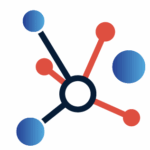CEDEC is the European Federation of local energy companies, representing the interests of 2000 local and regional energy and broadband companies across Europe, close to citizens and businesses, serving 100 million customers and connections in electricity, gas, district heating and broadband.
Active in every part of the value chain – local generation, distribution grids and supply – these companies provide products and services which are reliable, sustainable and close to the customer, making a significant contribution to local and regional economic development.
CEDEC is promoting local and integrated energy systems, sectoral integration, transitioning from fossil to renewable and low-carbon energy sources and sustainable financing, embracing the digital energy revolution, and supporting a just and inclusive transition.
Our Policy Priorities

From natural gas to renewable and decarbonised gases – Realising the potential
On the road to full decarbonisation, gases or ‘molecules’ will continue to play a key role to decrease CO2 emissions, to ensure seasonal storage and to contribute to a cost-efficient and affordable energy transition.

Decentralised is the new normal – Local and digital, close to citizens and customers
Technological developments and digitalisation go hand in hand to unlock the potential of local sustainable resources. Bringing the options close to citizens will contribute to the involvement of local communities in the energy transition.

Make sectoral integration happen – locally
Stop silo-thinking and link electricity with gas and heat. Sectoral integration and sector coupling are essential elements in any cost-efficient and energy-efficient strategy to respect the Paris Agreement.

A just and inclusive transition – Getting all on board
Regions and citizens start the transition journey with a different inheritance: getting and keeping all on board must be an evident goal for the Energy Union.

The digital energy (r)evolution – Opportunities and challenges for all stakeholders
Intelligent grids, communicating meters, platform revolutions, data accessibility, flexibility of energy demand, as well as integration of renewables and active customers will all be enabled and enhanced by digitalisation.